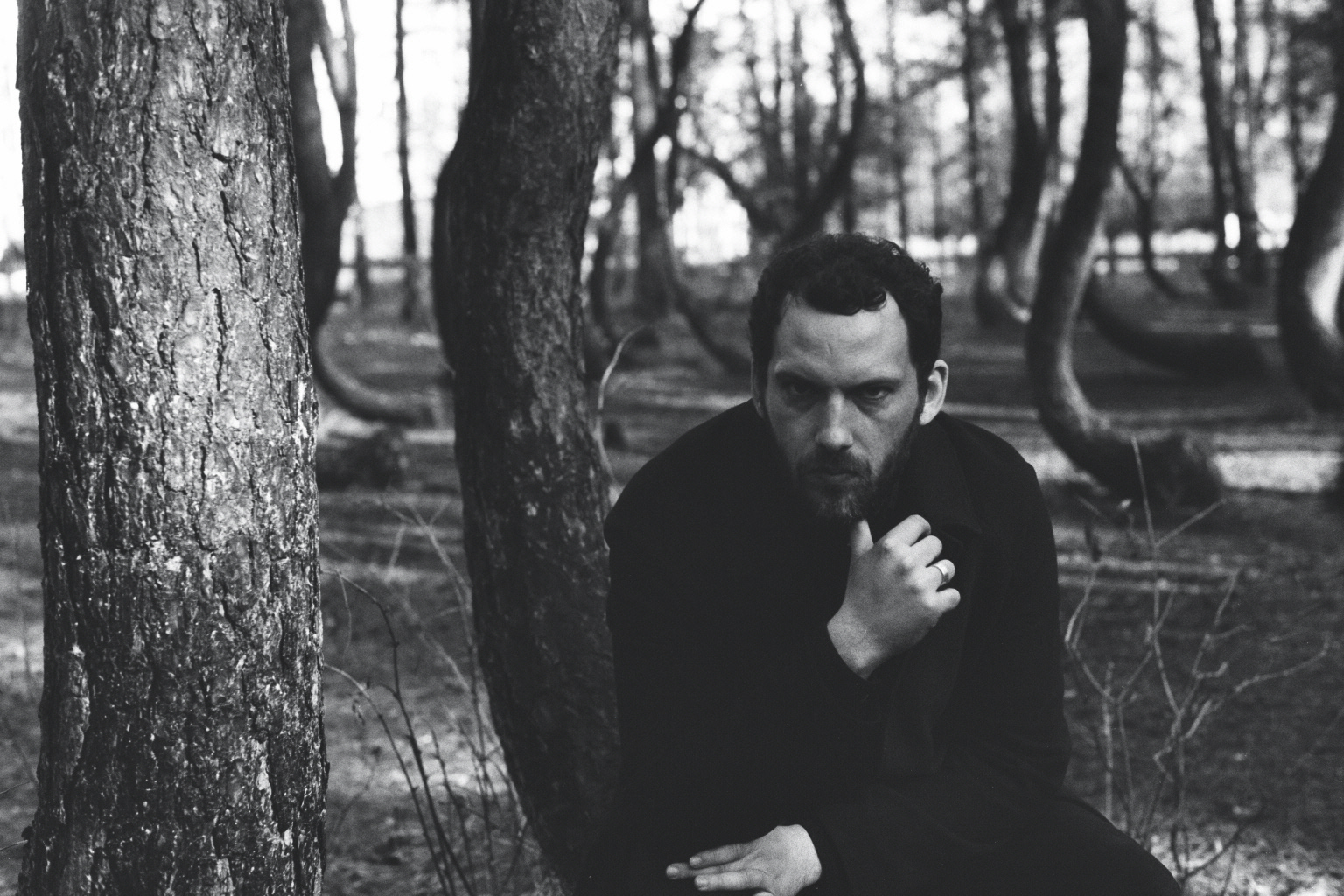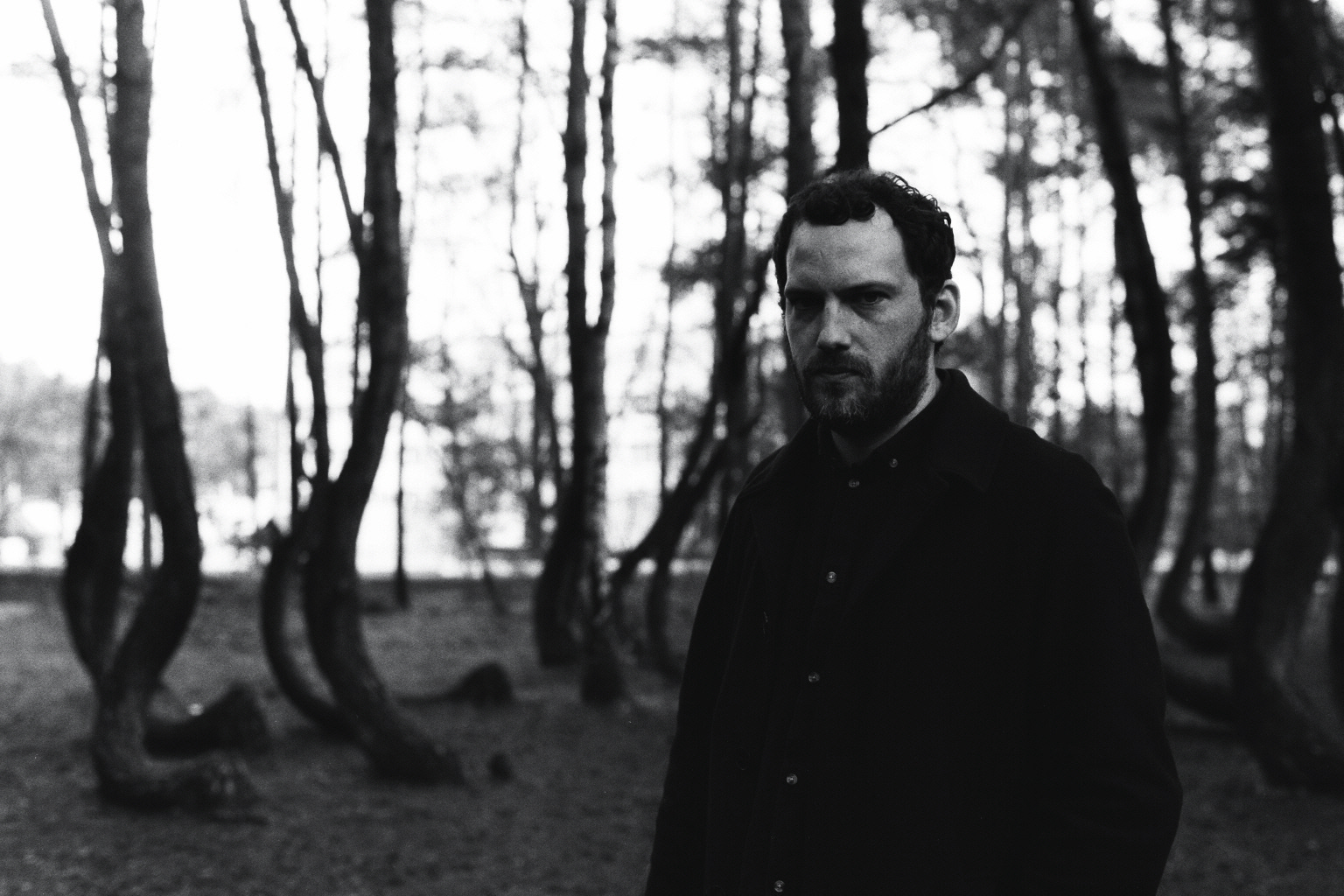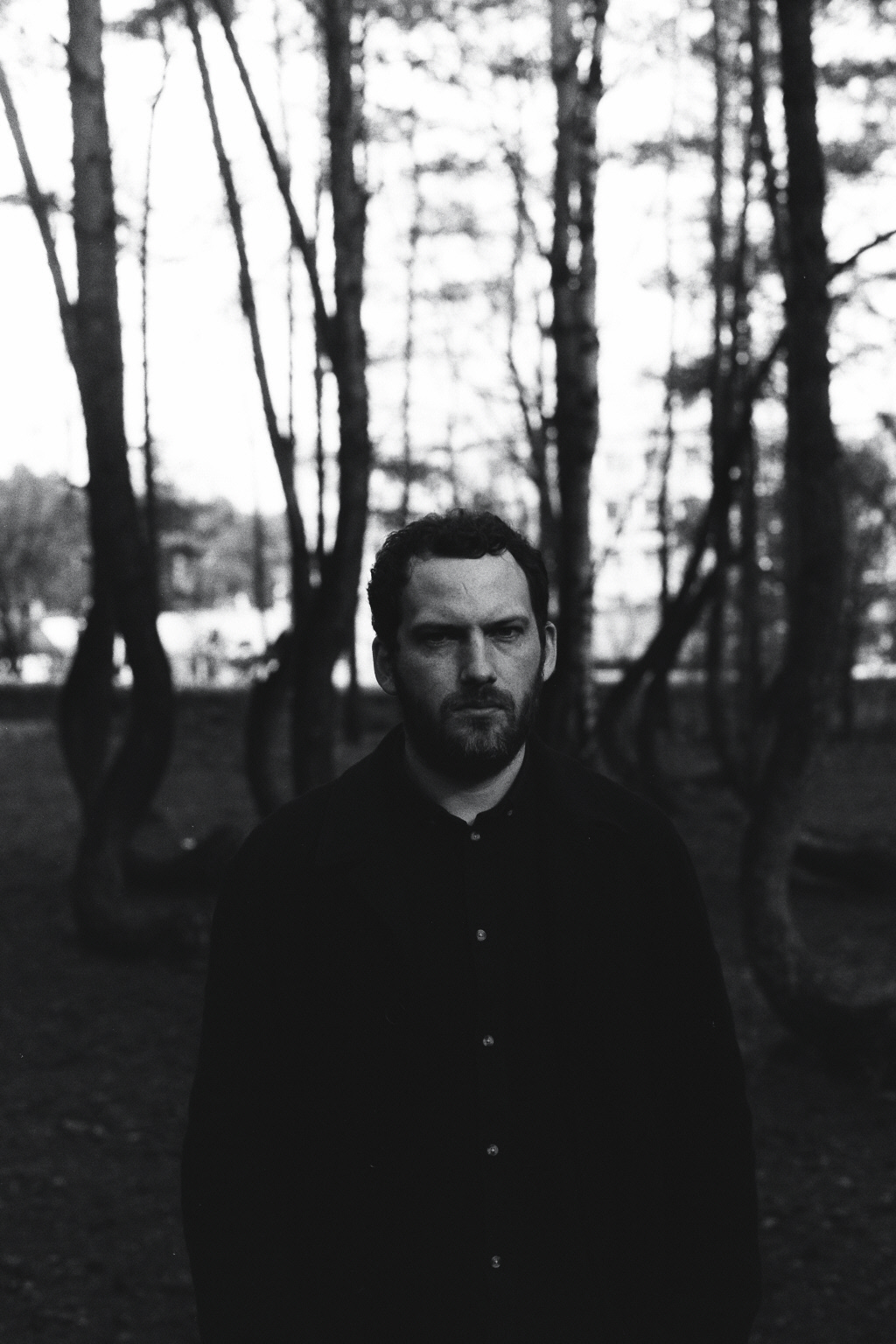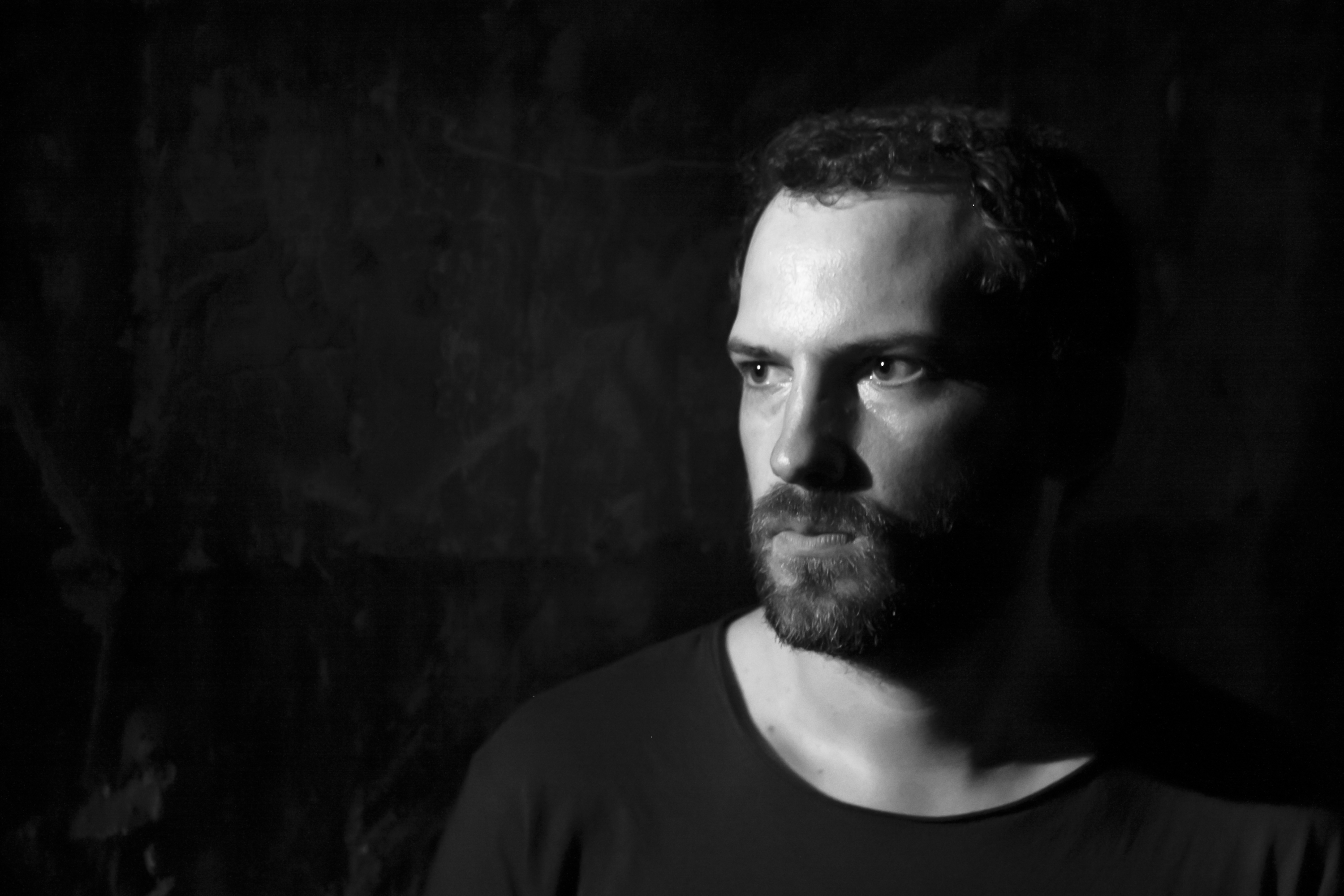Ask the Experts: Shifted
One of sound artistry's most exciting figures responds to your questions.

Ask the Experts: Shifted
One of sound artistry's most exciting figures responds to your questions.

Having only just announced our next Ask The Experts feature, we’re now publishing our last one—this time with Guy Brewer (a.k.a Shifted), of sound artistry’s most exciting and forward-thinking figures.
After departing his esteemed group Commix, Brewer uprooted his UK drum & bass beginnings and started Shifted—a project that has become known for its mastery of sound and space, texture, and tonalities. From his debut on Luke Slater‘s Mote Evolver label, to Dominick Fernow’s (Vatican Shadow) Hospital Productions and Bed Of Nails, and to his recent recordings for his own smartly curated imprint, Avian—home to techno experiments from Alessandro Cortini‘s Skarn, Peder Mannerfelt, SHXCXCHCXSH, and more—Brewer’s work radiates in its capacity to meld to context and circumstance without artistic compromise, and at once to color outside purist lines, push boundaries, and provoke thought in a call to progressive techno, electronic, noise and experimental music as a whole.
With the intention of pushing various forays further, Brewer has also birthed numerous other projects, notably the techno-drone outfit Covered In Sand (with releases on Avian’s sister label, Mira, Ascetic House, and more) and the doomy soundtrack wielding of Alexander Lewis (home on Blackest Ever Black, Vereker’s Endangered Species). In this versatility there is a steadfast dedication to a perpetual movement forward—arguably leaving Brewer to embody a pure, unadulterated spirit of what it means to be an electronic musician: a rebel artist treading new territories with a fascination and fixation to craft brilliance with a new noise.
In this month’s Ask the Experts, he goes deep on your questions.
How do you get that analog sound on your drums and percussion? It definitely sounds like it’s come out of a modular, but is there any specific way in which you approach the drums?
I have a few modules in Eurorack format, but actually for drums I use drum machines, samplers and the computer way more. I’ll start with something, be it a sample or something I’ve made on a drum machine, once it’s recorded to the computer the grunt of the work begins.
I really like the way drums sound when they are pitched beyond their normal realm; for example, I’ll have, an 808 tom, but you won’t really be able to tell that’s what it started life as. It’ll be pitched, compressed, sometimes sent back out of the computer for additional processing and then I’ll layer it with some other kick or maybe an unpitched version or something. Then I’ll buss that and keep trying out FX or dynamics, automating or the changing the timing of things until I start to vibe off something.
I use saturation a lot on my drums, perhaps this is what you mean by an “analog sound.” Since I’m not so great at doing hours and hours of EQ work, using saturation gives me another way of gelling layers together quickly. Getting an interesting, evolving rhythm section is always the goal, in my opinion, the way you handle and mix your drums is one of, if not the most important skill to master. Sometimes I fail with the layering and have to compromise on the way that something cuts through or whatever, but I enjoy this process, I couldn’t be one of these people who just rolls with the same drum sounds because they bang on a system; to me, that’s not the craft.
“Make no mistake about it, if one thing kills this scene it’ll be mediocrity.”
You and Blawan mentioned a hyper-productivity dead-end regarding techno. How do you think techno will be like in the future? And how does reflecting on such a phenomenon influence your way of producing and your motivation as an artist?
This thing of ours is very important to me, and so, it’s obviously a conversation I’m having quite often, and hearing a lot from other artists, too. No one really knows when/if the bubble is going to burst, and how things are going to progress/regress. You just have to stick to doing what you love, put as much passion into it as possible and set your goals and standards high.
I don’t want to come across negative here, that’s for 7 a.m. conversations with my closest friends and sometimes Twitter; so I’ll say this: there’s still a huge amount of places this genre can go, so many sonic mutations that are yet to be stumbled upon, and that’s an exciting prospect. If I can add just one other thing, it would be that it’s up to labels and promoters to demand excellence. If it’s just OK, then that’s not enough. Make no mistake about it, if one thing kills this scene it’ll be mediocrity.

How do you go about finishing tracks from the stems you get from your hardware gear? Are they long jams or resampled outtakes and loops re-arranged?
I’d say both. I spend a long time recording sequences with whatever it might be, then I’ll start with editing. I can’t get a tight loop that I feel comfortable with arranging before I’ve taken my time over the fundamentals of the track, i.e. the rhythm section and whatever is actually pushing it forward. This takes real time for me to achieve since the way a Shifted record sounds is largely down to the way I process in the computer. Once I have that core base there and I’m happy with it, I can be bit more loose and live with whatever else I put over it.
“…if you are, like myself, purely experimenting and hoping to stumble upon little accidents I think it’s quite difficult to have any real formula.”
As your material relies heavily on textures, which method do you apply to keep them interesting to yourself—is their origin conceived in your head and then thoroughly transferred to audio?
I’m certainly not sticking to a concept when I’m writing any element of a track really, this is something that I consider when I’m selecting music for a release. Obviously, there needs to be some kind of line throughout, something that makes it feel like a cohesive body of work—not just some random tracks thrown together.
My last album is an exception for me. There was a concept that I wanted to use throughout the record, but that wasn’t too hard to achieve as it was about the source material and not the end result. Writing music for me is often a struggle: I sometimes have to go through hours and hours of torturous bullshit before I finally land on something worth progressing with. Perhaps people who are more traditionally musical see things differently, but if you are, like myself, purely experimenting and hoping to stumble upon little accidents I think it’s quite difficult to have any real formula. I do have processes and tricks that I use time and time again. There are also samples I’ve used in a dozen tracks, or just messed around with in different ways. I think it’s these little things that define who you are as a producer. Of course, as long as they evolve.
Do you have any regrets regarding your career, your path?
My path is exactly that. My path. Every experience I had, be it positive or negative, has made me, my sound, and vision to what it is now.
Of course, there are records I shouldn’t have released or remixes I shouldn’t have accepted, just because I wanted to maintain a constant presence. The mistakes we make are as important as the things we view as failures. Sometimes we need these lessons.
“If there’s an aesthetic quality that surrounds my work and the music I release on Avian, it’s as much informed by “Metal Gear Solid,” “Syndicate Wars,” “Rifts,” Stanley Kubrick, Frank Miller, David Lynch or Katsuhiro Otomo, as it is by anythI’vei’ve discovered more recently.”
When talking about creative process, people often focus on the tools and the atmosphere in the studio required to develop ideas successfully. Having said that, I wanted to ask you about your outside influences: is there a defining trigger in art or design, literature or film that spurs you on creatively?
I’ve definitely heard people talk about going to see an exhibition and feeling inspired to go home and create, but this isn’t really something I relate to. Rather, I think that all of us become a product of our surroundings. Everything I do and see becomes a layer of what makes me who I am. Taking an interest in the art world beyond music is something that I only really began in any more serious way at the end of my 20s. Before that, I was like a sponge soaking up everything that surrounded me growing up. If there’s an aesthetic quality that surrounds my work and the music I release on Avian, it’s as much informed by “Metal Gear Solid,” “Syndicate Wars,” “Rifts,” Stanley Kubrick, Frank Miller, David Lynch or Katsuhiro Otomo, as it is by anythI’vei’ve discovered more recently.

What do you think about releasing ambient music on a techno label? Do you think it’s the beginning of something new in the world of club-orientated music or do you think it just serves techno?
Well, I wouldn’t say this is something particularly new. Artists known for their more floor- focussed productions have been flirting with more experimental material for a long time. You only have to look a the catalogs of labels such as R&S, Tresor or Downwards for evidence.
In recent years this has become more defined, to the point that you could see a little movement. I don’t know how to describe it really; kids who are raised on techno music but who are not working within those confines? It’s lead to some incredible records, perhaps also to some very bad ones. Although whenever we have a little trend around something you can say the same thing.
When it comes to Avian, I try to balance this. The label is supposed to represent both sides of my interests. It can’t become formulaic. I don’t want a pattern that we stick to. Avian should be as fluid as the A&R process is. I like things that fall into place, rather than being hammered into position.
Have you planned any upcoming collaborations?
Honestly, after years working as part of a duo I became a little weird about collaboration of any kind. You spend so long compromising and being just one voice of two. After a while you start to crave total creative control. At least for me this was the case. There have been exceptions, the A Model Authority record with Sigha, for instance.
Recently I decided to try and make some collaborative efforts happen again. I’ve started this Drifting Over imprint. I think this could be a better platform for collaboration than Avian actually is. It’s too early to say with who though, but I’ve been working on ideas with a couple of like-minded producers. Hopefully the fruits of this will get finished and see the light of day.

What is your creative process, do you always finish all the tracks you start?
I’d say the entire process is dependant of my state of mind at any one time. Music can be effortless or a total nightmare. There are periods when I feel particularly inspired and every time I turn on the machines, I walk away with something. Other times it’s very different. I sit there with a kick drum looping around for hours on end messing around and never getting anywhere. These sessions are always recorded too. It’s rare that I’ll come out without anything. Even if its just a sound or beat I can use another time. One thing I’d say is that in these moments of creative block the only real way to shake it off it is to push through and still try to get stuff done. If you sit on your ass and avoid the studio, it only amplifies the problem.
“As much as I’m all for people letting go while writing and just letting the process take them forward, I also think there’s a certain amount of thought that should go into deciding who you want to be, what you want to represent.”
What are you looking for when you make music?
It’s a hard thing to vocalise. Trying to find a sound that is uniquely me, perhaps. This doesn’t happen when I’m jamming with synths and coming up with initial grooves. It’s in the processing stages I find whatever it is that makes something sound like Shifted. From a technical level something obviously has to work sonically and translate on a system, the hard part is getting that to working within my aesthetic.
As much as I’m all for people letting go while writing and just letting the process take them forward, I also think there’s a certain amount of thought that should go into deciding who you want to be, what you want to represent. I choose bits of equipment for each track because I know they lead me in certain directions, and I might avoid or highlight certain techniques for the same reason. I guess my point is that you have to develop a mindset or code for who you are as an artist. These type of constraints massively help you define your “sound.”
“My favourite artists have always been people that seem to effortlessly glide between styles but still never loose what it is about their music that makes it unique.”
What’s the key to staying relevant within techno in this day and age?
Mutation is absolutely key in my opinion. My favorite artists have always been people that seem to effortlessly glide between styles but still never lose what it is about their music that makes it unique. This is the difference between someone who’s just making tracks and someone who can add this intangible quality to something and make it their own. I should definitely add that I’m not putting myself in this bracket, but to reach that point should be the goal of every producer.
Right now I feel like I have to make a conscious change within my music. I feel as though with the palette that I’m known for I’ve maybe said enough or too much already. It’s quite a frightening prospect trying to bend yourself away from a place where you’ve become comfortable and try new things. Every sound has a shelf life in my opinion, and to remain future-facing and “original” with music requires having the balls take risks, even if it’s one small one at a time.
What advice could you give to a producer who would like to release music on Avian? What kind of sound/ emotion, are you looking for?
There’s certainly something that I’m listening for, but it’s not something I’m really able to describe. I just know almost immediately if it feels right or not. There have been instances where I’ve not trusted my instinct, when I’ve done it for other reasons than just feeling that initial click. Those are the times I’ve ended up regretting the decision down the line.
It’s taken quite a long time to get to the place the label is at right now. I’ve made side steps into areas, come back, changed my mind, fucked stuff up …, been lazy all along the way. But thankfully I’ve been incredibly lucky to have so many talented friends around me that have helped shaped Avian into something that I think is perhaps unique.
What drew you to become a techno DJ? What still excites you in the scene & how do you imagine its future, any personal ideas/projects/utopias?
I certainly didn’t ever plan on this, it’s something I just suddenly found myself doing. I’ve just ridden the wave and tried to make the best of it. When you think about what’s transpired in order to take you down a certain path. It’s quite interesting actually, the people you’ve met along the way who have led you into things you would never have discovered otherwise. Chance encounters that have had a huge impact on your life.
It’s amazing to me that after years of doing this I’m still able to find stuff that can make my pulse race the way it did when I first discovered electronic music. I’m excited by this global community we have, that I can go to any corner of the planet and find people who are so passionate about this music. I think it’s quite unique, you arrive somewhere and meet people for the first time, but you know you have this link. This is something that I’m proud to be a part of. People have been making techno music since the 1980s, and the scene has changed and been reborn several times over, it’s not going anywhere.
_____
Photos 1 to 3: Ruben Jacob Fees
Photo 4: Anna Drozd.

